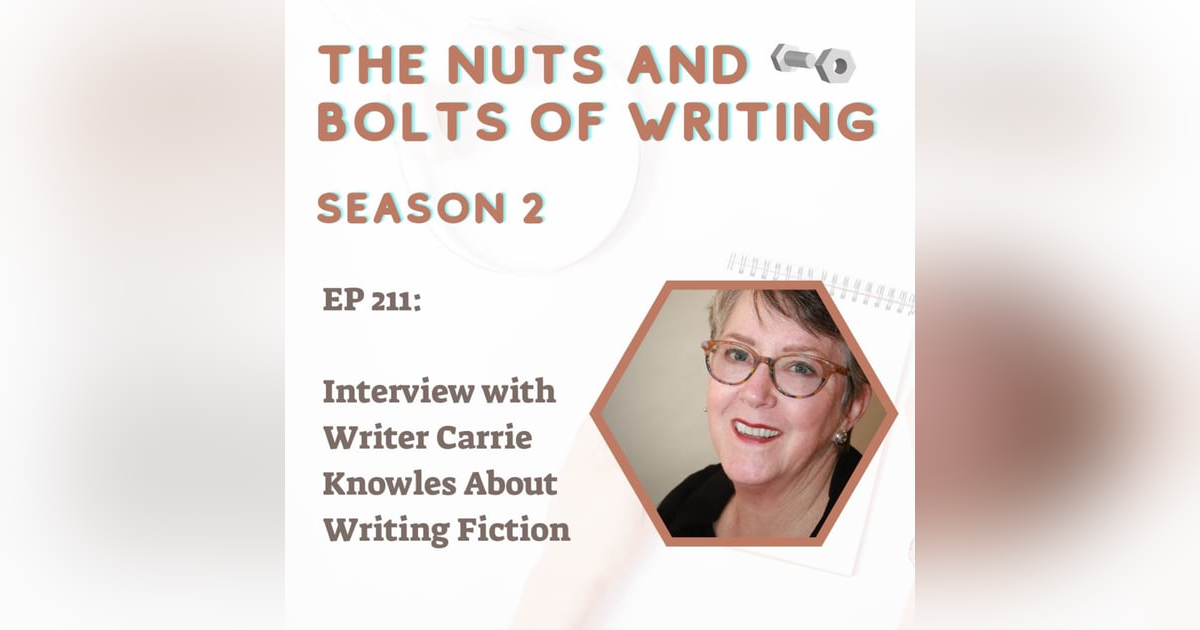
Sign up to get updates from us
By signing up, you agree to receive email from this podcast.

Today, host Imelda Wei Ding Lo (@fortunusgames) talks to artist and writer Carrie Knowles about her approach to writing fiction. We will continue our conversation with her in episodes 212 and 213, where we’ll talk about her approach to writing non-fiction and visual art, respectively.
Carrie Knowles is a prolific award-winning author and arts advocate.
Along with her nine books, she has published short stories, newspaper, and magazine articles, and received numerous awards for her writing.
She was named the North Carolina Piedmont Laureate for Short Fiction in 2014.
Carrie has published five novels: Lillian’s Garden, Ashoan’s Rug, A Garden Wall in Provence, The Inevitable Past, and A Musical Affair, as well Black Tie Optional, a collection of 17 of her short stories. Her memoir: The Last Childhood: A Family Story of Alzheimer's, has been described as a “must read” for family members caring for a loved one with Alzheimer’s.
During her time as the 2014 Piedmont Laureate, conducting writing workshops across five counties in North Carolina, she wrote a writing workbook aimed at providing the basic tools a new writer would need to get started: A Self-Guided Workbook and Gentle Tour on Learning How to Write Stories from Start to Finish.
She writes a personal perspectives column for Psychology Today, Shifting Forward, and has recently published a collection of the first 50 stories from her column titled: Shifting Forward: Fifty Reflections on Everyday Life.
To learn more about Carrie, go to her website: www.cjanework.com
In this episode, we’ll be talking about Carrie’s approach to writing fiction. Imelda asks her the following questions:
Which fiction genre did you start out with, and what have been your primary sources of inspiration for your fiction?
What is the difference between the facts as truth v.s. the emotional truth?
How did you find writing “A Self-Guided Workbook and Gentle Tour on Learning How to Write Stories From Start-To-Finish”? What were your main sources of inspiration for creating that guide? What kind of feedback have you received from readers using it?
In 2006, you bought a small office building in downtown Raleigh in North Carolina, in the United States. You then named the building the Free Range Studio and inscribed the following on the wall: “Creativity should have no boundaries and dreams no fences.” Its purpose was to provide office space to a broad range of creatives. You must have met many interesting and inspiring people between 2006 and 2021, when you sold the studio. Can you tell us some of the most inspirational moments in the history of the Free Range Studio?
As an experienced writer, what tips would you give to amateur fiction writers just starting out?
How did you get your fiction books published? What tips do you have for writers who want to get published, but don’t know how to get started?
--- Send in a voice message: https://podcasters.spotify.com/pod/show/fortunus-games/message